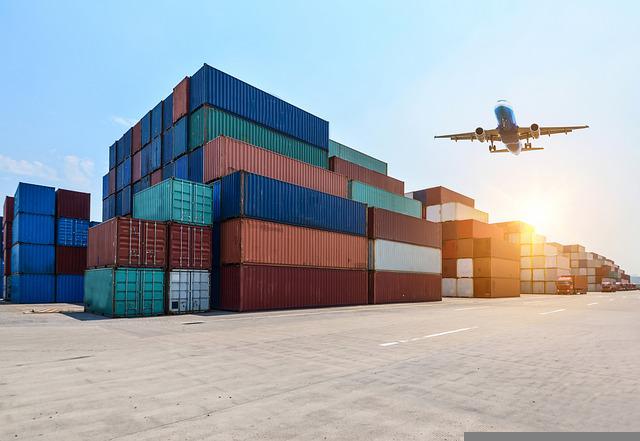-
The awarding of a critical contract under the World Bank-funded Philippine Customs Modernization Project (PCMP) is on hold
-
Delay stems from ownership issues involving the potential contractor for project supervision and quality assurance services
-
Bidding for the Customs Processing System has also been put off temporarily
-
BOC Assistant Commissioner Vincent Philip Maronilla says the extension won’t affect other portions of the PCMP
The Philippine Customs Modernization Project (PCMP) encountered a hiccup with the project supervision contract not yet awarded due to ownership issues involving the potential contractor, a Bureau of Customs (BOC) official said.
The awarding of the project supervision and quality assurance services (PSQA) contract to international consultancy Quality Institute (QI) is on hold pending resolution of its acquisition by OCA Global, BOC Assistant Commissioner Vincent Philip Maronilla told PortCalls in a Viber message.
In July 2021, Instituto de la Calidad (QI), which offered the most advantageous bid for the PSQA, was acquired by Spain-based privately owned multinational group OCA Global.
The takeover prompted a deferment of the contract awarding to QI pending a review, by the project funder World Bank (WB), of documents submitted by QI on its merger with OCA Global.
In January 2021 BOC issued a call for expression of interest for the P240.33-million PSQA contract, part of a US$88-million loan from the World Bank.
READ: BOC bids out P240M consulting services for modernization project
The PSQA contractor will assist in the implementation of the project. WB said PSQA is a critical first procurement that will jumpstart implementation of the PCMP.
The PSQA contract would have been awarded in December 2021 and QI would have gotten on board by January 2022, according to a November 2021 implementation status report by the World Bank.
READ: BOC eyes yearend award of first contract under Customs Modernization Project
Maronilla said BOC’s Legal Service has “just recently rendered its opinion on the effect of the merger on the status of QI, as the one found to have the most advantageous bid.”
The Special Bids and Awards Committee and BOC’s Project Management Unit will meet to discuss the Legal Service’s ruling and how to proceed, Maronilla said.
As a result, the bidding of the Customs Processing System (CPS) is also on hold “since the bidding for the CPS and other components of the PCMP is contingent on the on-boarding of the PSQA.”
Asked if the PSQA contract could be awarded and CPS bidding started within the second half of the year, Maronilla said the timeline may have to be extended with the WB and government’s procurement process.
He said any extension will, however, not affect other parts of the PCMP.
PCMP is expected to improve the country’s customs administration through streamlining, automation, and development of a world-class CPS. The project was officially launched in March 2021, with an eye on achieving global standards and full modernization by 2024.
READ: BOC launches Customs Modernization Project, eyes full modernization by 2024
The World Bank’s Executive Board approved the loan for the project in October 2020. The project was introduced by the Washington-based lender in 2017 and approved by the National Economic and Development Authority Investment Coordination Committee-Cabinet Committee on March 6, 2020.
The project has a total cost of $104.38 million, of which $88.28 million will be funded through the World Bank’s official development assistance, and the balance to be shouldered by the Philippine government.
BOC will be responsible for project execution and for ensuring project development objectives are met. The agency will be supervised by its mother agency, the Department of Finance.
A project steering committee, chaired by the Finance Secretary and composed of other agencies critical to BOC operations, was created mainly to provide policy guidelines on the implementation of PCMP.
Traders, exporters, importers, port operators, shipping companies, and transport providers – many of them small and medium enterprises employing many workers – are expected to benefit directly via reduced transaction costs and enhanced predictability and transparency of the clearance process.
Customs Commissioner Rey Leonardo Guerrero earlier said the PCMP will address “the urgent need of the Bureau of Customs to upgrade, expand and standardize our ICT systems, operational networks, and organizational structure.”
The project’s technical design forms an interlocking set of reforms to address the challenges BOC faces, with focus on automation to improve the bureau’s processes and integrated systems.
The CPS will improve adherence to international standards and conventions on customs processing, provide audit trail for transactions, and allow for greater transparency and less opportunity for corruption.
PCMP is also expected to create a simplified, faster, and more user-friendly experience for compliant traders, with the CPS supporting enhanced intelligence in targeting and discovering high-risk cargo as well as compliant traders. This is expected to expand the country’s tax and duty base and “lead to an in increase in government revenue without implementing additional taxes.”
World Bank country director Ndiamé Diophad earlier said similar customs reform projects of the bank in other countries have led to an increase of between 11% and 300% in revenue collections. – Roumina Pablo





